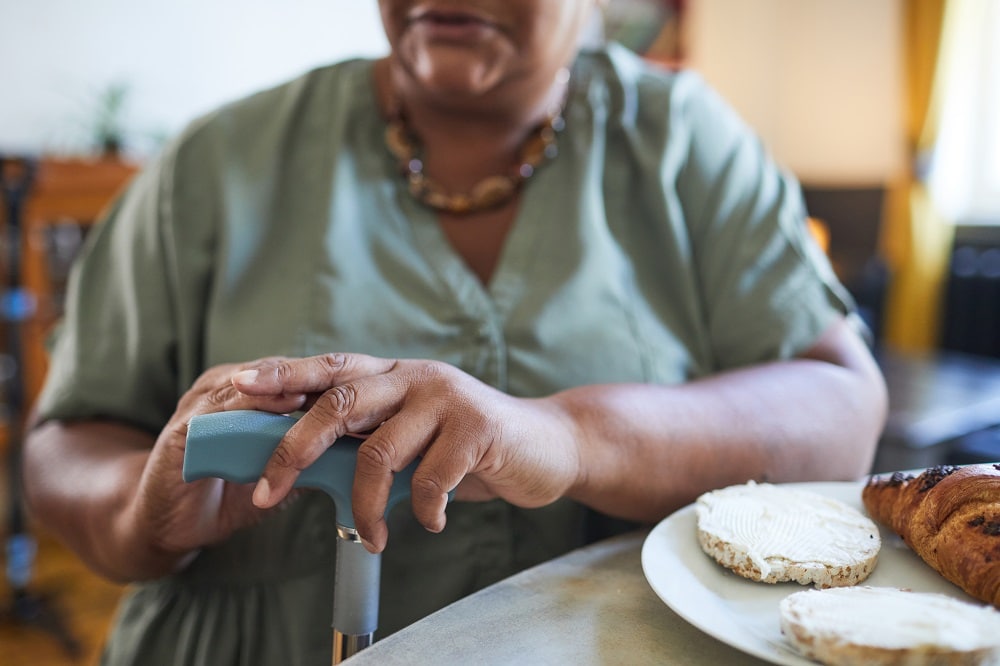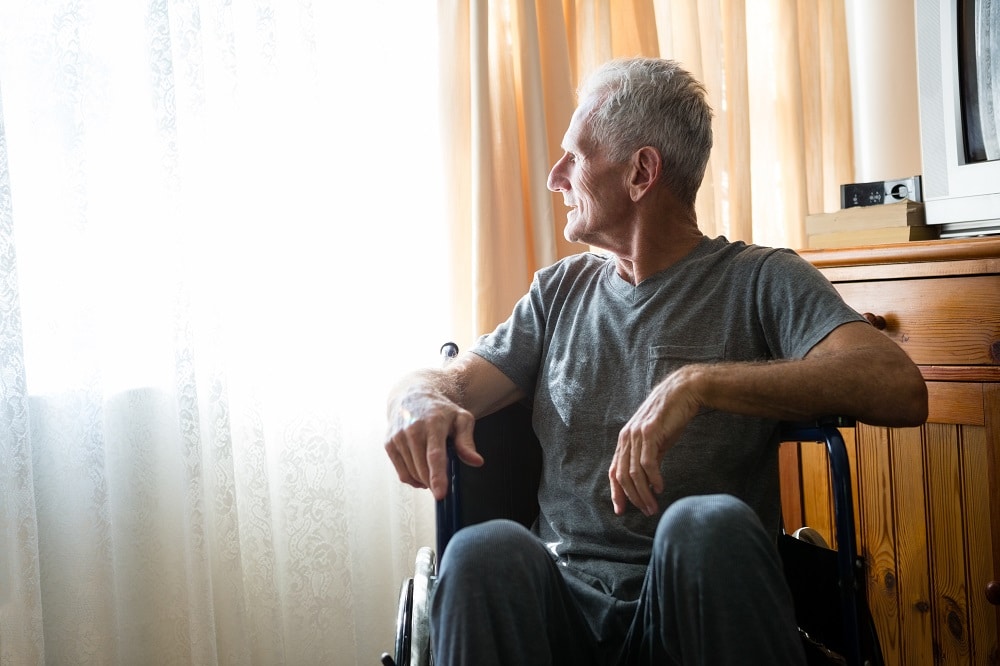Savannah Nursing Home Negligence and Abuse Lawyer

Nursing Home Negligence And Abuse Lawyer
Aside from a hospital, one can find the highest incidence of care for older adults in a nursing home. Nursing homes provide custodial care and assistance and may include occupational or physical therapy. Unfortunately, although most nursing homes treat their elderly residents with care and dignity, some nursing homes do not provide adequate care to their elderly residents. This population is among the most needy and dependent upon diligent attention from healthcare workers.
In the United States, nursing home neglect and abuse is a tragic but all-too-common problem. It can occur when nursing home residents are neglected, abused or ignored and when prescribed care is not provided, all of which can lead to suffering and further health problems.
The Centers for Disease Control and Prevention (CDC) states that nursing home negligence is any action (or inaction) that fails to meet an older person’s basic needs such as food, water, clothing, shelter, proper hygiene, and medical care in a nursing home.
On the other hand, nursing home abuse occurs when a resident is subject to physical, emotional, sexual, or financial abuse. Nursing home negligence may not be intentional; however, it can still result in serious injuries or even death of elderly residents.
In both cases, victims of nursing home negligence or abuse, families may pursue legal action to rectify the wrongdoing.
Types of Nursing Home Negligence

Nursing Home Physical Negligence
Severe medical issues arise when a nursing home fails to provide proper nutrition and hydration to its residents.
Another example of physical negligence is failing to assist an elderly resident going to the restroom, often resulting in a slip and fall injury when the resident attempts to go alone. The facility might fail to administer the proper medications to patients at appropriate times, resulting in severe consequences or even death. A patient may be bedridden and the facility may fail to “turn” or reposition the patient for long periods, which can cause pressure sores to develop. These may become infected. Sadly, bedridden patients are sometimes left to lie in soiled bedsheets, which, again, can lead to severe infections.
Simply failing to meet the physical needs of elderly residents can lead to catastrophic outcomes like illnesses, injury, or death. A family’s primary goal in placing a loved one in a nursing home is to ensure that they receive appropriate and compassionate care and supervision, essential to maintaining a healthy quality of life. When a nursing home fails to provide this care and supervision, it may lead to a nursing home negligence claim.
Nursing Home Emotional Negligence
While physical nursing home neglect can result in serious injuries or death, emotional nursing home neglect can also harm elderly residents.
Emotional neglect can result from failing to meet a resident’s emotional needs, such as allowing them to visit with friends and family. Because many elderly residents already have neurocognitive disorders such as Alzheimer’s disease or dementia, emotional neglect can cause serious emotional and physical issues.
Types of Physical Abuse Inflicted on Nursing Home Residents
Physical abuse by nursing home staff or other residents happens far too frequently. The frail and elderly are particularly vulnerable to this type of abuse due to their additional health problems and frailty. In addition, residents of nursing homes are frequently isolated from their families or see them infrequently, causing them to suffer in silence and sustain long-term physical and psychological injuries due to their abuse.
Physical abuse against the elderly is often classified into three types of mistreatment:
1. Active Abuse
This type of abuse is deliberate, with the perpetrator intending to injure or cause pain to the resident. Examples are pushing, slapping, pinching, punching, burning, shaking, and shoving the victim.
2. Abusive Use of Restraints
While it is against federal law to use restraints for purposes other than appropriate medical care, nursing homes frequently misuse restraints as a way to discipline patients or for staff convenience. When residents attempt to free themselves from restraints, they may sustain serious injuries. Additionally, residents may experience loss of muscle tone, body mass, and other complications due to being restrained in an immobile position.
3. Physical Neglect
This is a form of elder physical abuse and neglect in and of itself. Examples include lack of food and liquids, lack of clothing, failure to maintain sanitary conditions for the resident to live in—both physically and in the facility as a whole.
Nursing Home Negligence and Abuse Consequences
Negligence and abuse manifest in various ways and can have long-term consequences for both the victim and the victim’s family. These consequences can vary in severity depending on whether or not the abuse is discovered.
Individual Health and Abuse of the Elderly
Numerous types of abuse can put a senior’s health at risk. Physical abuse is the most noticeable, with the elder suffering broken bones, bruises, fractures, or other physical ailments due to the caregiver’s actions. Emotional and sexual abuse can also have a detrimental effect on an elder’s physical and mental health, manifesting in their ability to care for themselves or willingness to interact with others. Financial abuse can also result in an elder not receiving the food, utilities, or care they require daily to maintain their overall quality of life.
Strain In Relationships And Elder Abuse
A nursing home resident’s emotional abuse can take many forms, including isolation. This isolation can take the form of physical separation from other residents in a nursing home or visiting family members. It can also be through manipulation that an elder is isolated, with a caretaker or care staff convincing the resident that the resident’s family or loved ones mean to harm the resident in some way. If the abuse is not detected, the lack of communication and possible abrupt change in attitude associated with this manipulation can cause relationship strain up to the elder’s death. Additionally, there are psychological ramifications. As a result of long-term emotional abuse, an elder may also develop other psychological disorders or mental illnesses.
Frequently Asked Questions
How Do I Report Nursing Home Neglect and Abuse?
Contact a long-term care ombudsman for additional assistance or report it to state or local authorities. A local ombudsperson advocates for nursing home residents and can assist in investigating claims of neglect.
You can also report neglect to law enforcement, Adult Protective Services (APS), and social workers, all of whom are trained to assist you in keeping a senior safe.
Finally, you may want to contact a nursing home abuse lawyer who can assist you in demanding compensation to cover medical bills and other expenses.
When Can I Sue for Nursing Home Neglect and Abuse?
If you or a loved one endured serious health problems as a result of nursing home neglect, then you may be able to file a lawsuit. Taking legal action for nursing home neglect is a critical first step. It enables you to seek financial compensation to cover medical treatment costs and hold the nursing home accountable.
Call the Thomas Hunter Law Firm for a free case consultation today to see if you have grounds to sue for nursing home neglect or abuse.
How Do I File A Case for Nursing Home Neglect and Abuse?
1. Find an Experienced Lawyer for Nursing Home Abuse
If you suspect your loved one in a nursing home suffers abuse, you should seek the advice of a lawyer who is familiar with this area of law and who has handled nursing home cases in the past. Your lawyer can assist you in better understanding the case of a loved one and determining what evidence will be required to prevail.
2. Prepare the Necessary Documents
The evidence you’ll need to proceed with a nursing home negligence or abuse case will depend on where you are and what type of case you’re filing. If you are not the resident yourself, you will need to be appointed (if you have not already been appointed) to act on the part of the nursing home resident. The following are examples of possible evidence:
- Medical bills on abuse treatment
- Police records (if applicable)
- Compare your loved one’s previous medical history to their current records.
- Witnesses’ Accounts
- Photographs or video footage of the abuse and injuries
3. File Your Petition
File a complaint—in other words, your case—in a court of law with the help of your nursing home abuse lawyer. This document will identify the parties and state the allegations against the defendant(s). Nursing home abuse cases are often filed quicker than other types of injury cases, simply due to the age and health condition of the injured parties. If the resident is coherent, it is generally better to litigate sooner than later in order to preserve the resident’s testimony, just in case the resident’s condition takes a turn for the worse.
4. Go to Court
If the case does not get resolved in mediation, it will go to trial. You and your lawyer will present your evidence in support of your cause. Unfortunately, these cases, like many other cases, take time to prepare and take time to get into the courtroom, so it is impossible to predict how long it may go on before resolution.
Credible Legal Assistance For Nursing Home Negligence and Abuse Cases

The National Center for Victims of Crime says that neglect is the cause of 15.3 percent of elder abuse complaints in nursing homes. Sadly, negligence and abuse in nursing homes is a more common occurrence than society would like to admit. Although most nursing homes show respect to their elderly residents, there are many cases where nursing homes do not provide adequate care to their elderly.
If you want to initiate legal action against the person or institution who abused or neglected your loved one, compensation for the mistreatment can be demanded. Damages that may be claimed include medical expenses, pain and suffering, emotional distress, wrongful death (if appropriate) and punitive damages, if the facts support that element.
The Thomas Hunter Law Firm represents elderly victims and their families who have been subjected to neglect and abuse in nursing homes. We can assist you if you need to file a nursing home negligence or abuse case. We provide our clients with sympathetic and solid representation.
A “slip and fall” happens when a person trips and sustains severe injuries while visiting someone else’s business or residence. These types of lawsuits are typically grouped under the broad category of “premises liability” claims. This is because “slip and fall” accidents frequently occur on someone else’s property or premises,” and the property or premises owner may be held legally liable.

